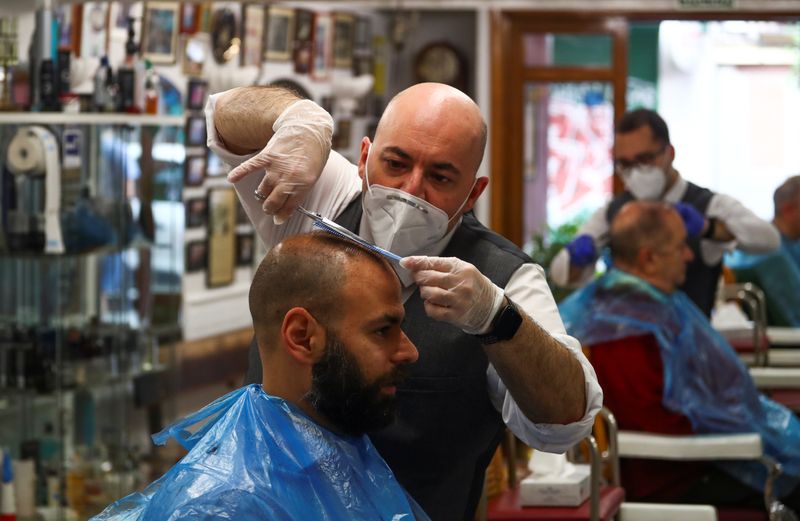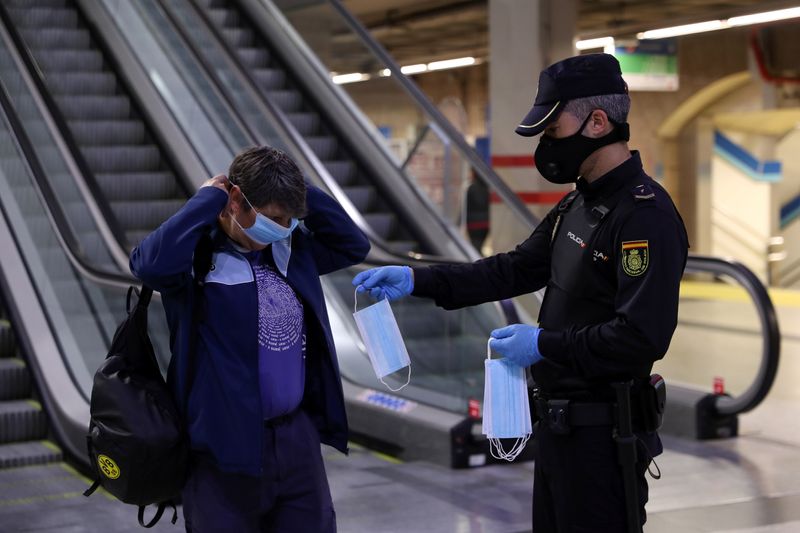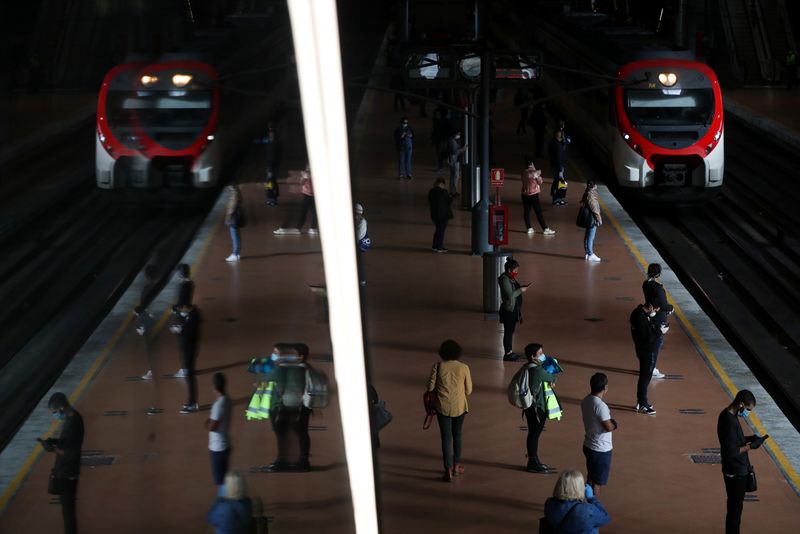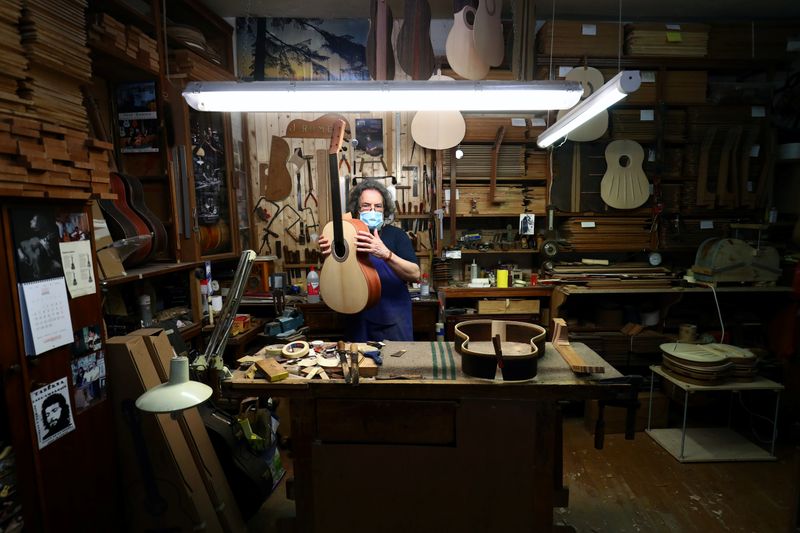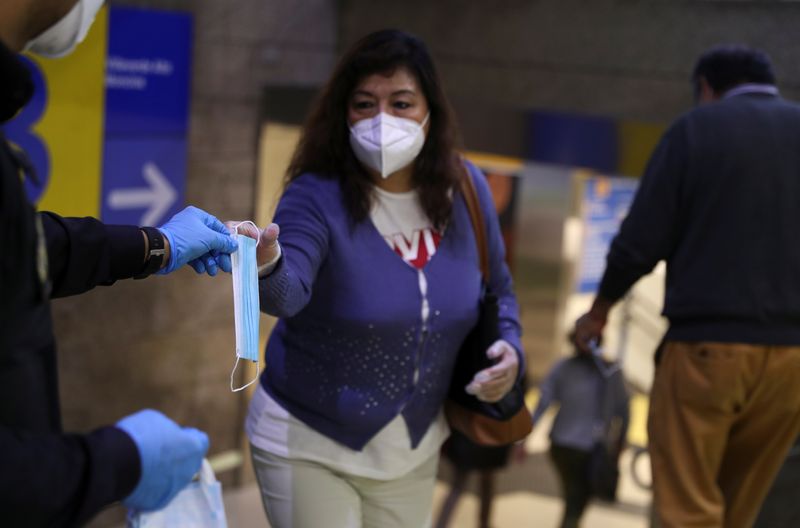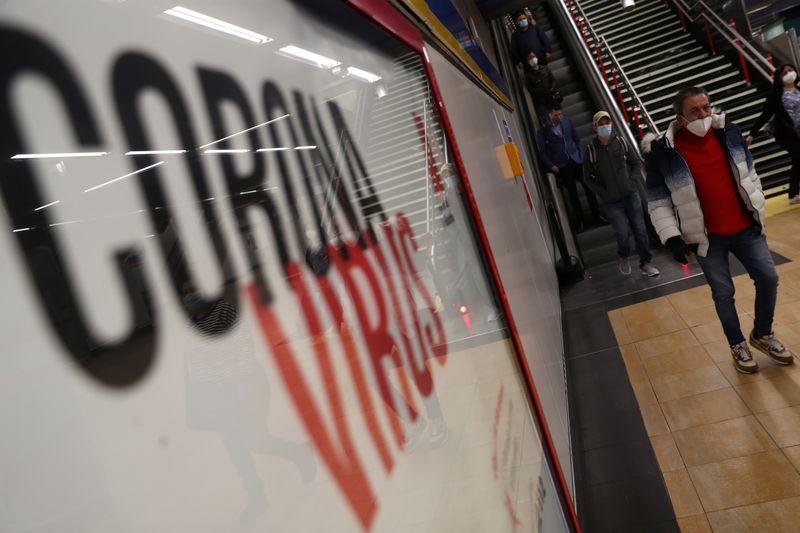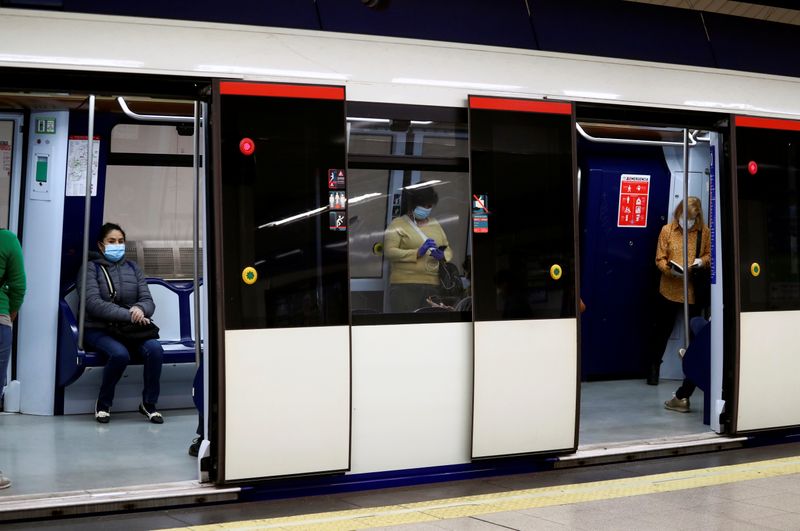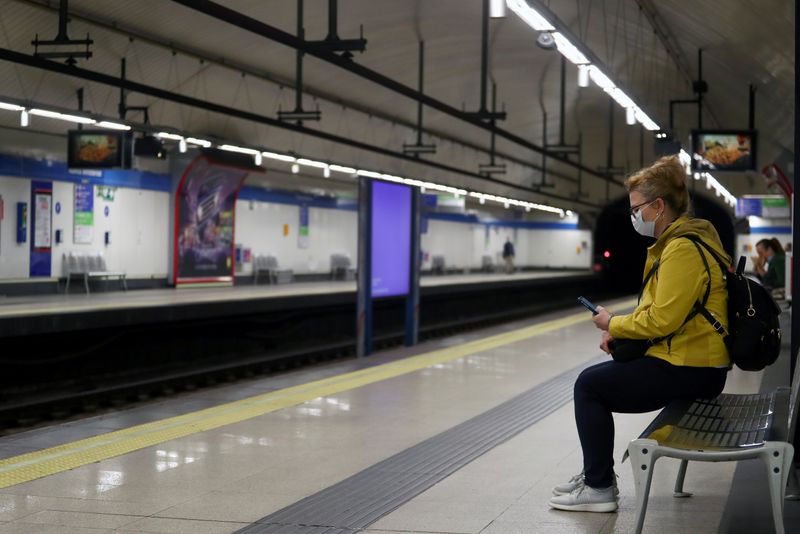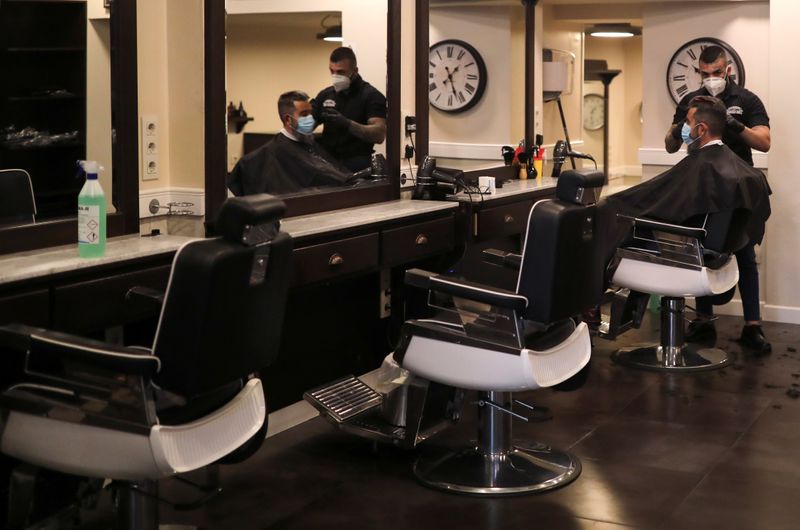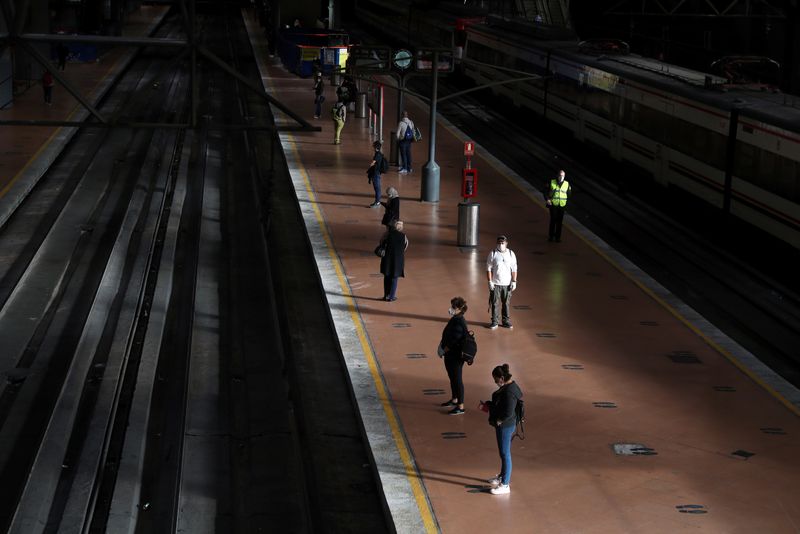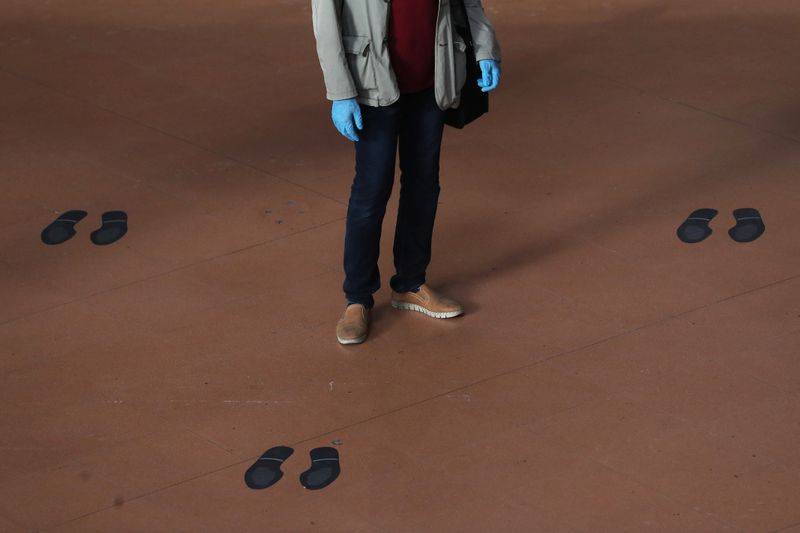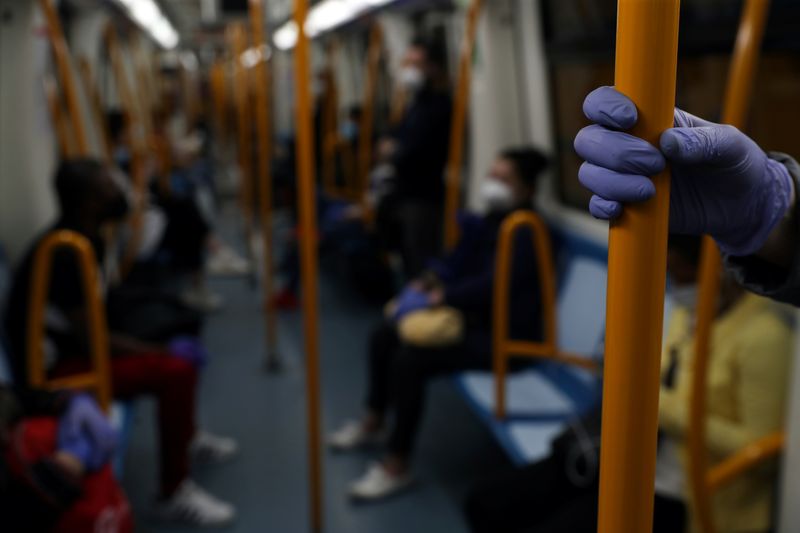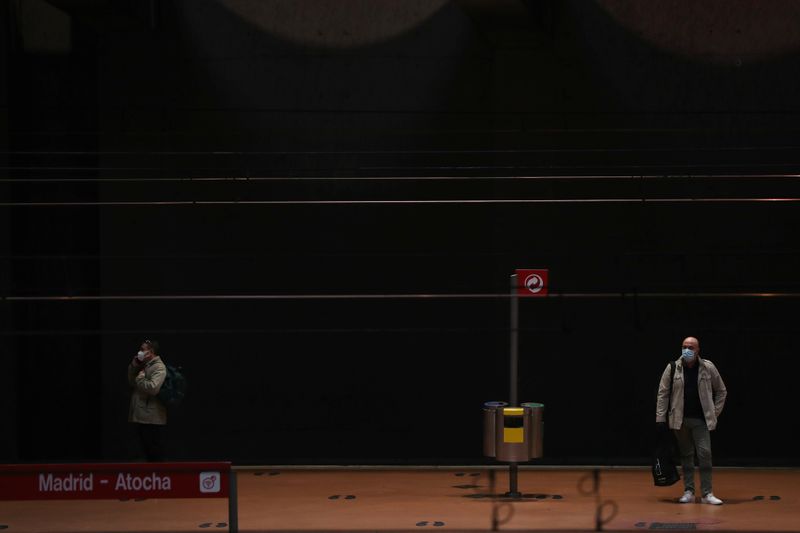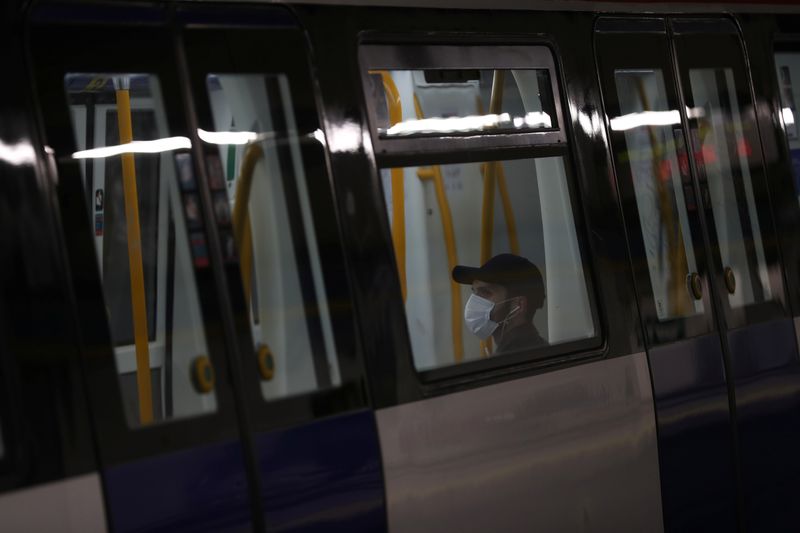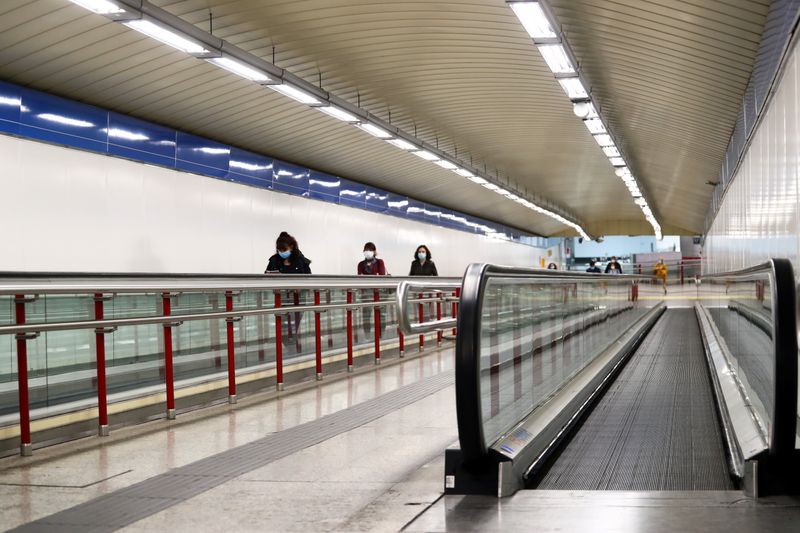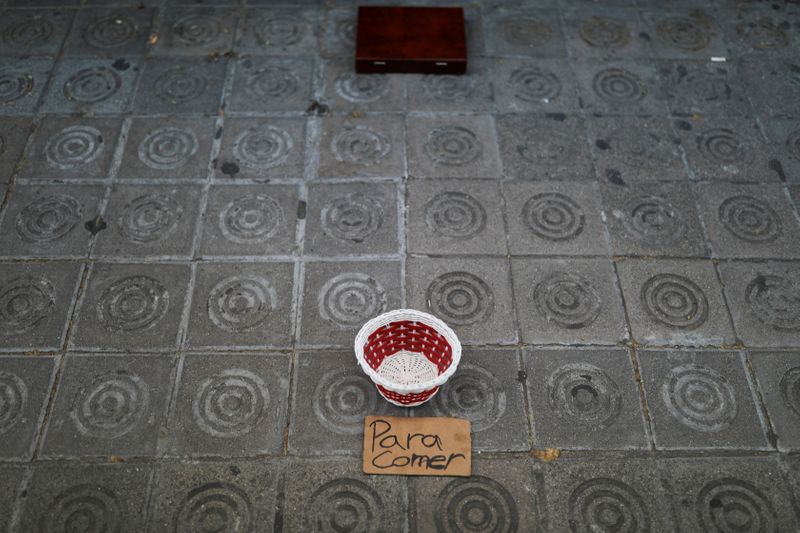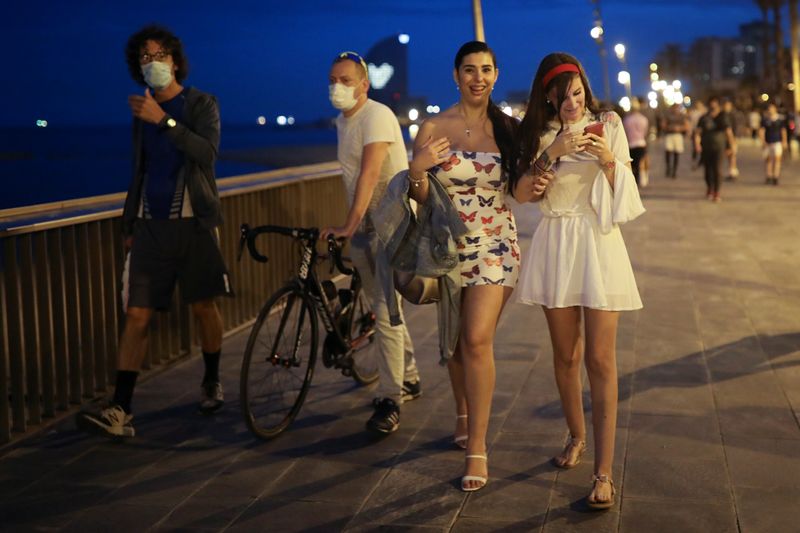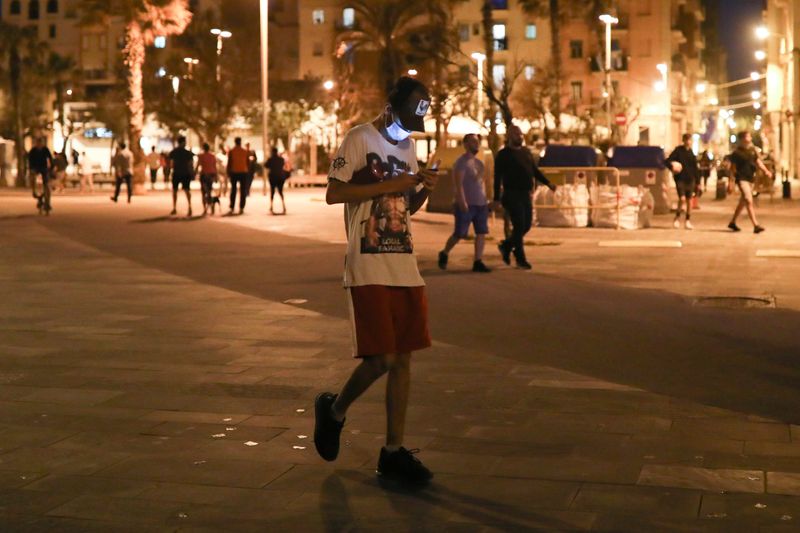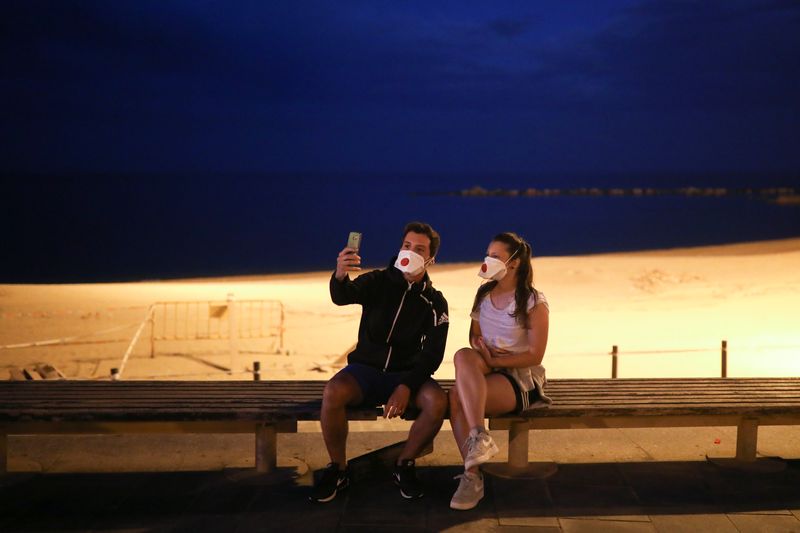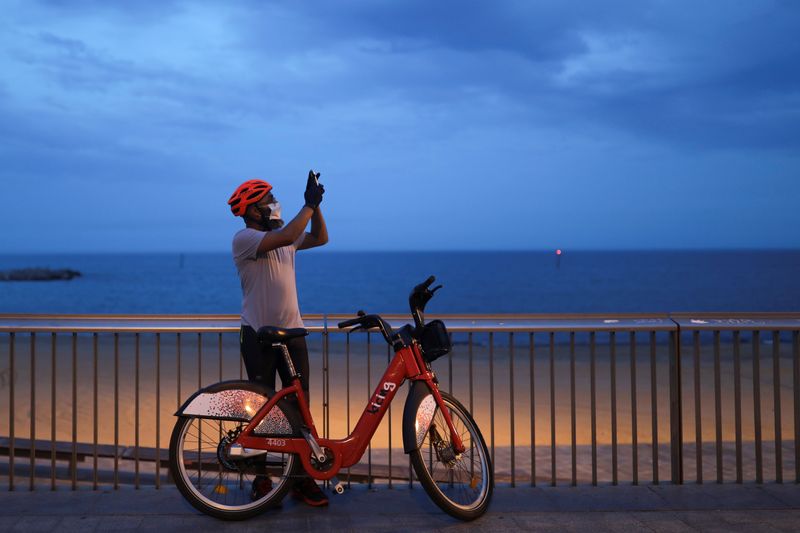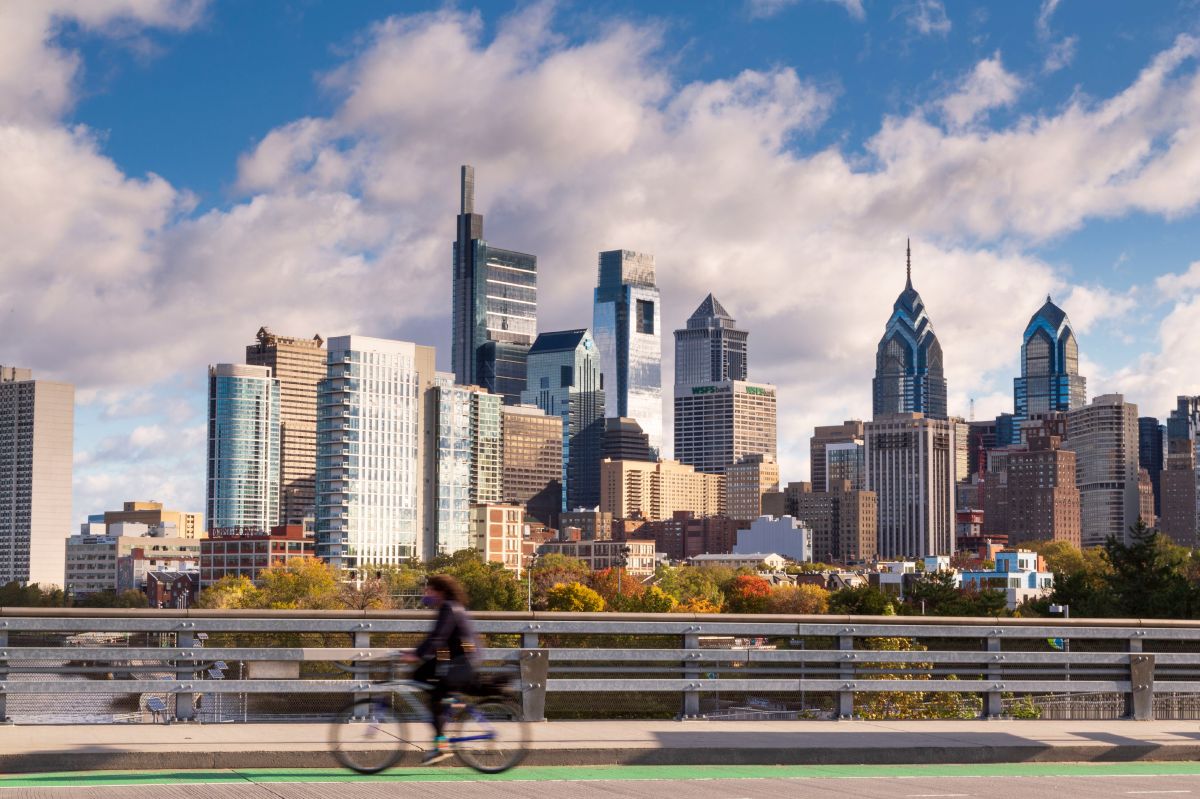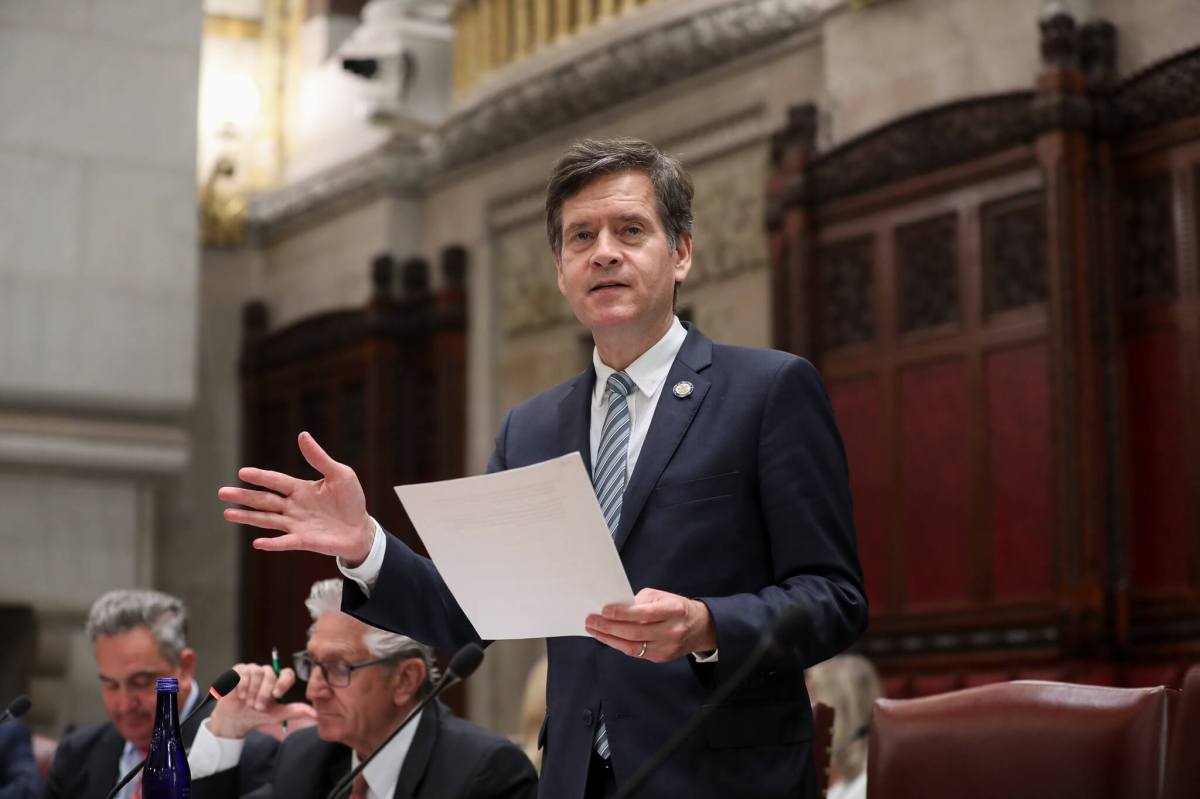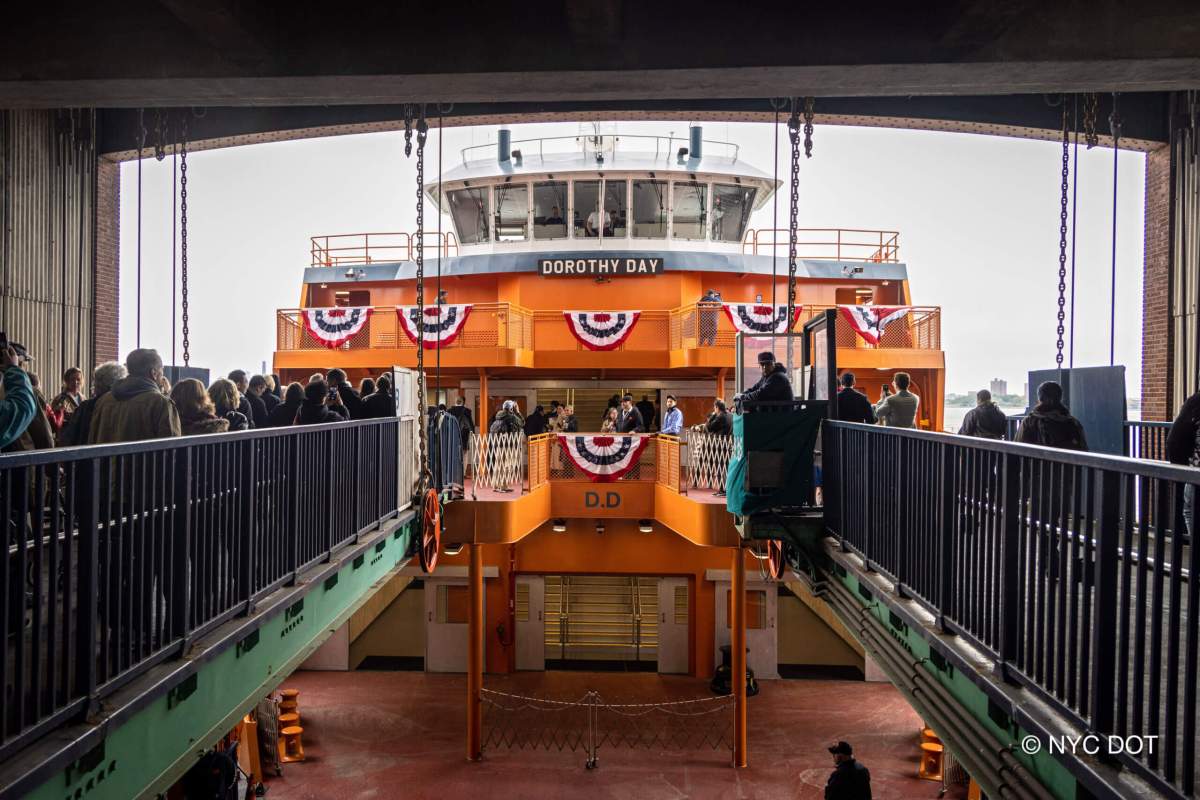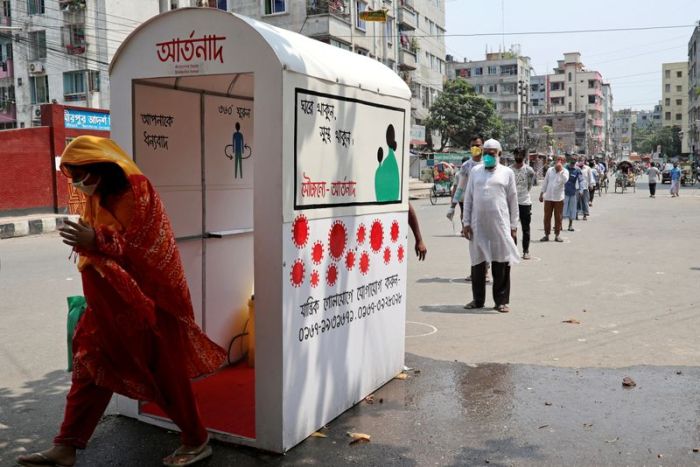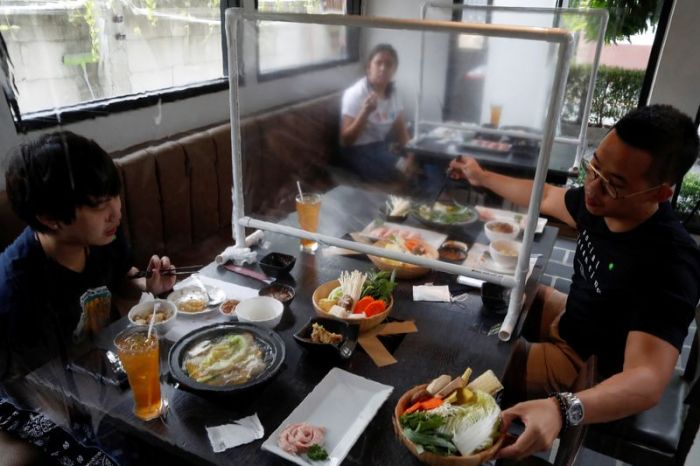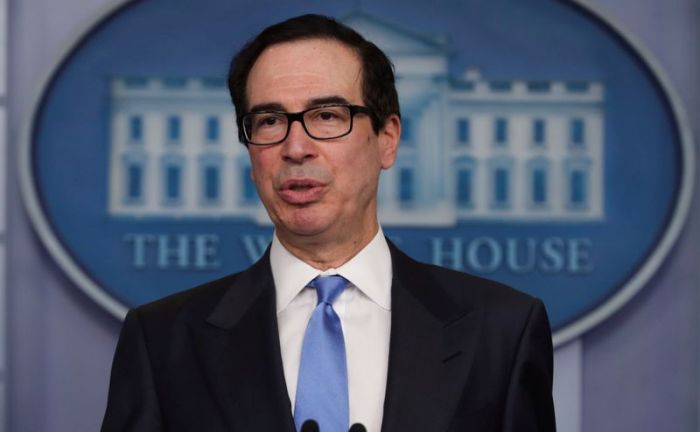MADRID (Reuters) – Hairdressers, ironmongers and florists opened for business with restrictions on Monday as Spain began a four-phase plan to reopen by end-June, while the 24-hour death tally from the coronavirus pandemic stayed under 200 for the second day in a row.
Red Cross workers handed out masks at Madrid’s metro stations as wearing face protection on pubic transport became mandatory. Passengers crossing from the holiday islands of Ibiza to Formentera were tested for the virus before boarding.
“The first three days are fully booked,” said barber Alfonso Sanchidrian, as he brushed hair from a customer’s forehead at a hairdresser’s in the capital.
Also in Madrid, florist Fernando Ramos wore a plastic shield over his face and sprayed down the counter with disinfectant between clients who entered the shop one at a time.
“I’m buying a gift for a sister’s birthday, and one for me – for my house’s Virgin (statue),” said customer Maria Antonieta Roda, who carried a spray of white lilies out of the shop.
Prime Minister Pedro Sanchez said on Saturday that six million masks were due to be distributed in Spain, one of the nations worst hit by the global pandemic.
But his fragile coalition government is facing opposition to its plans to extend the state of emergency which allows Madrid to centralise the response to the crisis and co-ordinate the country’s exit from its strict lockdown.
On Wednesday, Sanchez must seek parliamentary approval to extend the state of emergency which ends on May 9 for another two weeks in an increasingly hostile political environment.
Over the weekend, people across Spain were allowed out of their homes for the first time in seven weeks as the government began easing tough restrictions. Joggers, cyclists and walkers took to the streets in droves and some beaches were packed.
Spain imposed a strict lockdown mid-March, confining most of the population to their homes for all but essential trips.
As the rate of infection has fallen and hospitals have regained their footing, the government has shifted its focus towards reopening the country and reviving a battered economy.
The Bank of Spain on Monday said it expected a significantly sharper contraction of the economy in the second quarter from the first – already a quarterly record.
On Friday, the government predicted the economy would shrink 9.2% this year.
Showing how Spaniards have kept their hands in their pockets as they hunkered down at home under the lockdown, new car sales practically evaporated in April, with new car registrations down 97% from the same month a year earlier, official data showed.
The death toll climbed by 164 in the previous 24 hours to 25,428 and cases reached 218,011, according to health ministry data on Monday. However, in a sign of how the rate of infection is abating, several regions registered no new cases.
In the next stage, outdoor areas of bars and restaurants can open at half occupancy, while groups of up to 10 people will be allowed in public places and in homes.
Three of the Canary Islands – La Gomera, El Hierro and La Graciosa – and the Balearic island of Formentera which have had no new COVID-19 cases in 28 days entered this second phase on Monday and opened outdoor terraces for bars.
“I have taken all the measures that the council has advised
me to do with customers coming in one by one and sitting out on
the terrace,” said Juan Manuel Benitez, who opened his bar on El Hierro on Monday.
(Additional reporting by Inti Landauro, Emma Pinedo, Nathan Allen, Belen Carreno, Paola Luelmo and Jesus Aguado; Writing by Sonya Dowsett, Editing by Angus MacSwan)

